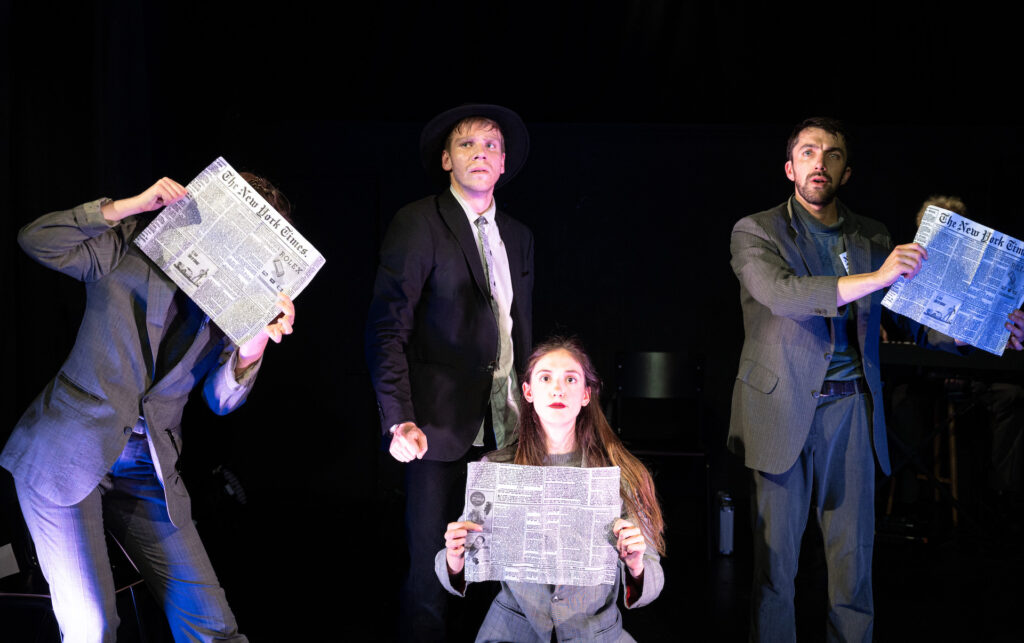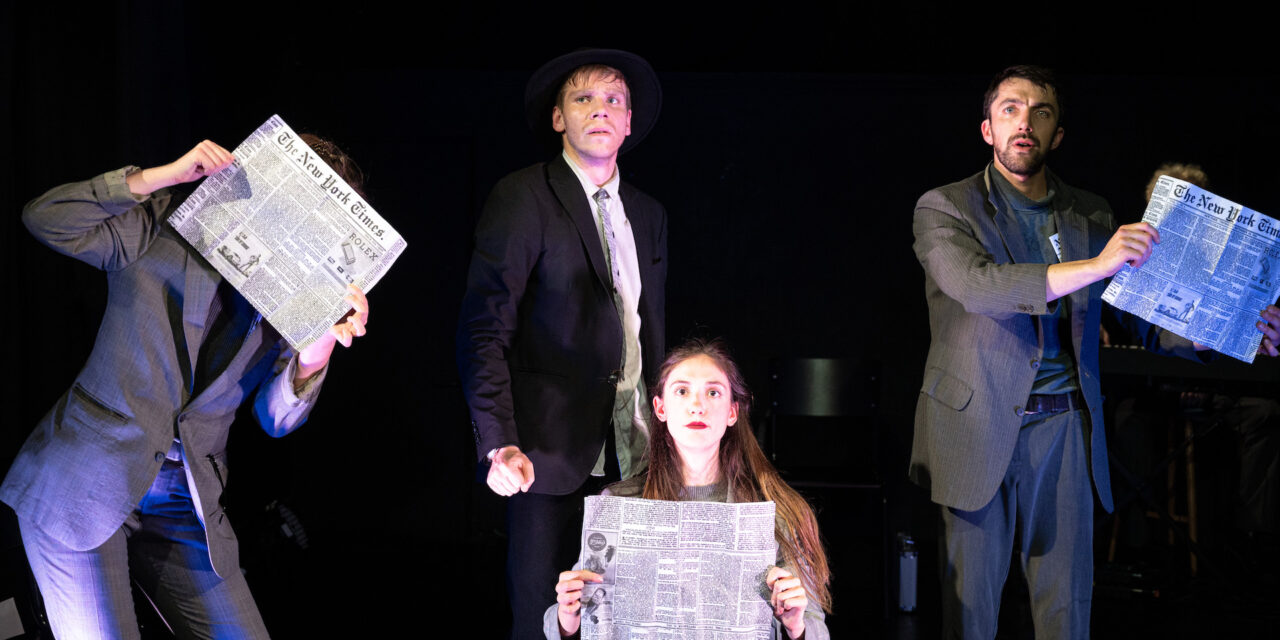
2 November
At its best, good physical theatre can feel like magic. And there are moments of magic in this inventive new production from Voloz Collective. Sadly, the magic is not sustained. As the show progresses, the prodigious skills and talents of the four performers fail to mask the lack of engaging or coherent content. The narrative structure is loose and episodic, cinematic in style, a kind of caper, focussing on the globe-trotting adventures of a French copywriter, Roger. There is more than enough plot to push the action forward, but the main point of the production seems to be the miraculous way the company, clad in grey suits, or in Roger’s case, plain black, can transform their bodies into people, places and things.
It might be argued that theatre does not need to move an audience on every occasion. There are other aesthetic considerations. And it does seem as if the company is seeking, by its homage to the Hitchcock thriller and the spaghetti western, to make an oblique comment on 20th century society. Perhaps a sensible comparator is not drama but vaudeville. Guitar, percussion and keyboard provide an evocative soundscape ranging from the blues to ‘La Vie in Rose’. There is little dialogue. Instead, we are given frequent announcements, dates, locations and news flashes. One exception is an amusing comic interlude showing Roger’s attempt to sell Coca Cola to the average American male, his sexism wonderfully counterposed by his female secretary’s much wittier copy. All the action takes place in 1963, a year whose significance becomes painfully apparent in the closing sequence.
The story takes wing when Roger narrowly avoids death by an explosion which destroys his Manhattan office building. For reasons which are never entirely clear he is forced to leave the country. His travels take him to Paris where he encounters a seductive Russian spy, and then to England via Sealink Ferry in a delightfully absurd sequence in which he is catapulted into the Channel and swims through fish and choppy waters to the English coast. No need for scenery or props; the underwater world is brilliantly conveyed by the subtle movements of the other performers. From this point on Roger’s frantic experience becomes increasingly outlandish. He gambles on the horses, is transported to Siberia, is sent into space in a rocket with a ferocious cat, escapes death via parachute and lands in Texas where he rides bucking broncos. He ends up in Dallas together with the entire Russian spy ring as well as his former secretary whose presence now takes on more sinister attributes.
The effect of the whole is reminiscent of student productions, wildly creative while lacking the maturity of a coherent piece of art. It’s hard to know what the company is trying to do, though one of the cast makes an effort to explain the origins of the play, which was written by the group as a form of alternative history and an indication of better ways to live. Fortunately, the speaker is cut off mid flow. The Man Who Thought He Knew Too Much may be confusing, but it becomes even more confusing in its effort to explain itself.
★★★☆☆ Ros Carne 2 November 2023
Photo credit: Matthieu Ponchel


